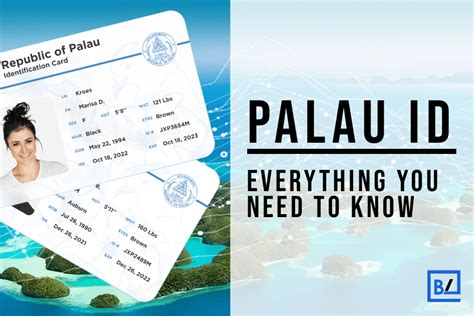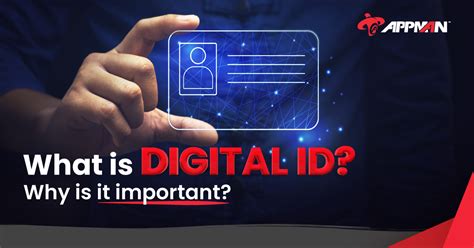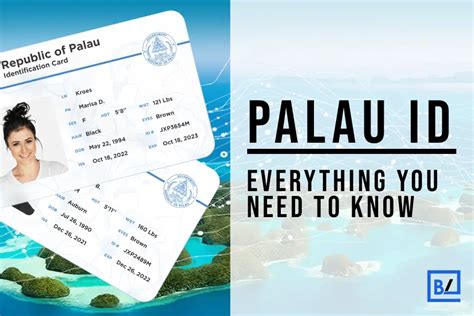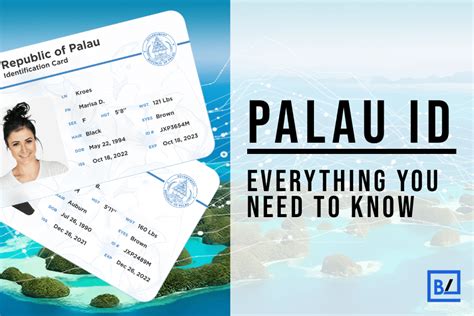A digital ID is a digital representation of an individual’s identity. It can be used to authenticate users, access online services, and make secure transactions. Digital IDs are becoming increasingly common as more and more people conduct their lives online.

How Does a Digital ID Work?
Digital IDs are typically based on public key infrastructure (PKI). PKI is a system that uses two keys to encrypt and decrypt data. One key is public and is shared with others. The other key is private and is kept secret.
When a user wants to create a digital ID, they generate a public and private key pair. The public key is shared with others, while the private key is kept secret.
When a user wants to authenticate themselves, they use their private key to decrypt a message that has been encrypted with their public key. This proves that the user has access to the private key, and therefore that they are who they claim to be.
What are the Benefits of Using a Digital ID?
There are many benefits to using a digital ID, including:
- Convenience: Digital IDs can be used to access a wide range of online services, including banking, shopping, and social media. This can save you time and hassle, as you don’t have to remember multiple passwords or go through a lengthy registration process each time you want to use a new service.
- Security: Digital IDs are a more secure way to authenticate yourself online than traditional methods, such as passwords. This is because digital IDs are based on PKI, which is a very secure system.
- Privacy: Digital IDs can help to protect your privacy online. This is because digital IDs do not contain any personally identifiable information, such as your name or address.
What are the Different Types of Digital IDs?
There are many different types of digital IDs, including:
- Government-issued digital IDs: These are digital IDs that are issued by a government agency. They are typically used for high-security applications, such as accessing government services or making online payments.
- Commercial digital IDs: These are digital IDs that are issued by a commercial company. They are typically used for lower-security applications, such as accessing online banking or shopping.
- Self-issued digital IDs: These are digital IDs that are created by the user themselves. They are typically used for low-security applications, such as accessing online forums or social media.
How Can I Get a Digital ID?
There are many different ways to get a digital ID. You can:
- Apply for a government-issued digital ID: You can apply for a government-issued digital ID from a government agency. The process for applying for a government-issued digital ID varies depending on the country in which you live.
- Purchase a commercial digital ID: You can purchase a commercial digital ID from a commercial company. The process for purchasing a commercial digital ID varies depending on the company from which you purchase it.
- Create a self-issued digital ID: You can create a self-issued digital ID using a variety of software tools. The process for creating a self-issued digital ID varies depending on the software tool that you use.
What are the Future of Digital IDs?
Digital IDs are becoming increasingly common as more and more people conduct their lives online. In the future, digital IDs are likely to become even more important, as they are used for a wider range of applications. Some of the potential applications for digital IDs include:
- Access to government services: Digital IDs could be used to access a wide range of government services, such as applying for benefits, paying taxes, and voting.
- Making online payments: Digital IDs could be used to make online payments more secure and convenient.
- Accessing healthcare services: Digital IDs could be used to access healthcare services, such as making appointments, viewing medical records, and paying for prescriptions.
- Enrolling in education: Digital IDs could be used to enroll in education programs, such as taking online courses and applying for scholarships.
Conclusion
Digital IDs are a powerful tool that can make it easier and more secure to conduct your life online. As digital IDs become more common, it is important to understand how they work and how to use them safely.
FAQs
-
What is the difference between a digital ID and a password?
A digital ID is a more secure way to authenticate yourself online than a password. This is because digital IDs are based on PKI, which is a very secure system. Passwords, on the other hand, are not as secure, as they can be easily hacked or stolen. -
Do I need a digital ID to access online services?
No, you do not need a digital ID to access most online services. However, some services, such as government services and online banking, may require you to have a digital ID. -
How do I get a digital ID?
There are many different ways to get a digital ID. You can apply for a government-issued digital ID, purchase a commercial digital ID, or create a self-issued digital ID. -
What are the benefits of using a digital ID?
There are many benefits to using a digital ID, including convenience, security, and privacy. -
What are the future of digital IDs?
Digital IDs are becoming increasingly common as more and more people conduct their lives online. In the future, digital IDs are likely to become even more important, as they are used for a wider range of applications. -
What are some tips for using a digital ID safely?
Here are some tips for using a digital ID safely:- Keep your private key secret.
- Do not share your digital ID with anyone.
- Use a strong password to protect your digital ID.
- Store your digital ID in a secure location.
- Be aware of phishing scams.
Tables
| Type of Digital ID | Issuer | Use |
|---|---|---|
| Government-issued digital ID | Government agency | High-security applications |
| Commercial digital ID | Commercial company | Lower-security applications |
| Self-issued digital ID | User | Low-security applications |
| Benefit of Using a Digital ID | Description |
|---|---|
| Convenience | Digital IDs can be used to access a wide range of online services, saving you time and hassle. |
| Security | Digital IDs are a more secure way to authenticate yourself online than traditional methods, such as passwords. |
| Privacy | Digital IDs do not contain any personally identifiable information, protecting your privacy online. |
| Potential Application for Digital IDs | Description |
|---|---|
| Access to government services | Digital IDs could be used to access a wide range of government services, such as applying for benefits, paying taxes, and voting. |
| Making online payments | Digital IDs could be used to make online payments more secure and convenient. |
| Accessing healthcare services | Digital IDs could be used to access healthcare services, such as making appointments, viewing medical records, and paying for prescriptions. |
| Enrolling in education | Digital IDs could be used to enroll in education programs, such as taking online courses and applying for scholarships. |



